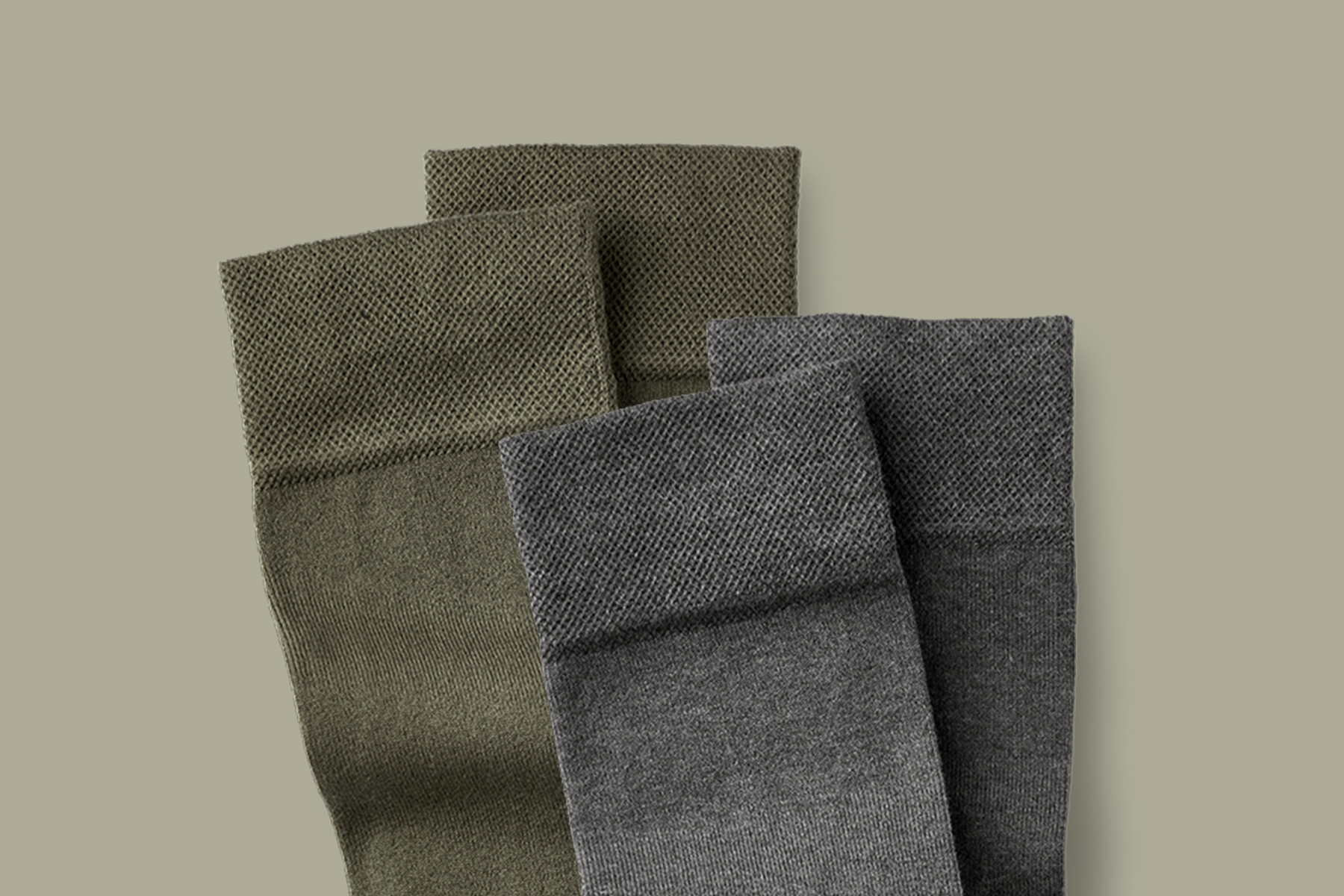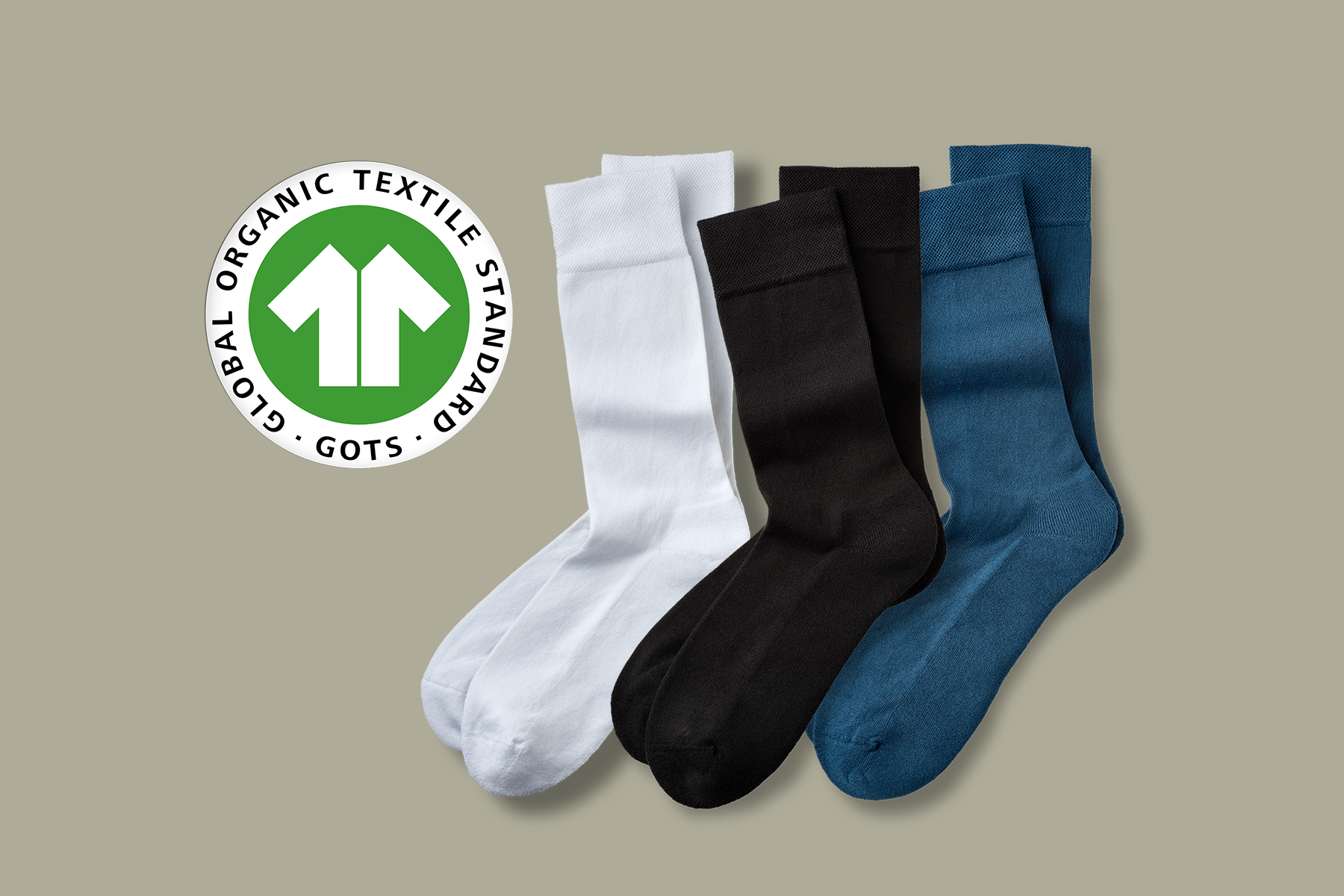Organic cotton
More and more organic cotton, also called "Organic Cotton", finds their share in textiles. Only a few letters make the difference on the label. In reality there are worlds between organic cotton and normal cotton.
Organic cotton had to survive some hurdles to be able to call himself that. Real organic cotton protects people and the environment. In a short point of view, she may be more expensive. In the long run, it is better for our health and diversity on the planet. In addition, she is doing great in ours Organic Comfort and organic sneaker socks.
Your advantages:
- Protects human & environment
- Less ecological footprint
- Lower water consumption
- No chemicals or genetics -modified seeds
- Protection of the soil and preservation of biodiversity

The origins of cotton
Even thousands of years ago, peoples from various areas used cotton. Zones in which cotton remains are found are India, Africa, America and Egypt. At the latest in the Middle Ages and in modern times, the diverse fiber all over the world spread.
The difference to normal cotton
The biggest difference between organic cotton and conventional cotton is the cultivation. In the case of organic cotton, neither pesticides or fertilizers, nor monocultures are used.
The cultivation of conventional cotton
Monocultures often occur in GMO cotton. On the one hand, this strategy favors pests, on the other hand, it makes the soil sterile over time. The pests are combated with pesticides, which in turn attack the ground.
For this reason, normal cotton needs up to 10,000 liters of water a day. A large part of it poisoned and then contaminates the surrounding waters. As a result of these measures, natural enemies die of pests and the variety of surrounding nature.
Biological extension
Instead of monocultures, the farmers pay attention to a variety of crop rotations - the cultivation of varied plant species.
This procedure has two important advantages: the natural Soil fertility remains preserved and the plants are less susceptible for diseases and pests. The crop rotations are also a reason why no pesticides are needed. Because all the chemicals are eliminated, the soil stores water much better and the plant is more resistant to insects. The result is a natural cycle that maintains itself in the long run.

The advantages of organic cotton
The controlled biological cultivation dispenses with harmful measures. The soil and biological diversity remain protected and nature in balance.
What you choose if you buy organic cotton:
- less ecological footprint
- Lower water consumption
- no chemicals or genetics -modified seeds
- Protection of the soil and preservation of biodiversity

Organic certificates for textiles
The term "organic" is legally protected. Organic is only a product when it meets the guidelines of the certificate. As with food, there are also different certificates for textiles.
Once a year, an independent certification body checks whether the product continues to meet the requirements. Well -known seals for Organic Cotton are, for example:
- GOTS® standard
- OCS-100 standard
- KBA (controlled biological cultivation)

Organic cotton according to the GOTS® standard
GOTS® is an internationally leading standard that sets ecological guidelines for biological textiles. The requirements define the level of the entire textile production process: from cultivation to the processing of the product.
The criteria of the GOTS® standard include:
- Use of natural means, who protect against pests
- Use of largest part Renewable resources
- Conservation of the Soil fertility
- Exam chemical additives such as dyes to toxicity and biological degradation

Social responsibility
The products are produced according to European standard. The organic cotton comes from Egypt and is processed in northern Italy. We maintain a close cooperation with our suppliers.

How to wash organic cotton
Cotton can withstand temperatures of up to 90 degrees. Your organic clothing does not break if you wash it in between. However, the recommendation is 30 degrees. This protects her organic clothing and she stays beautiful for longer.

Our organic cotton products











